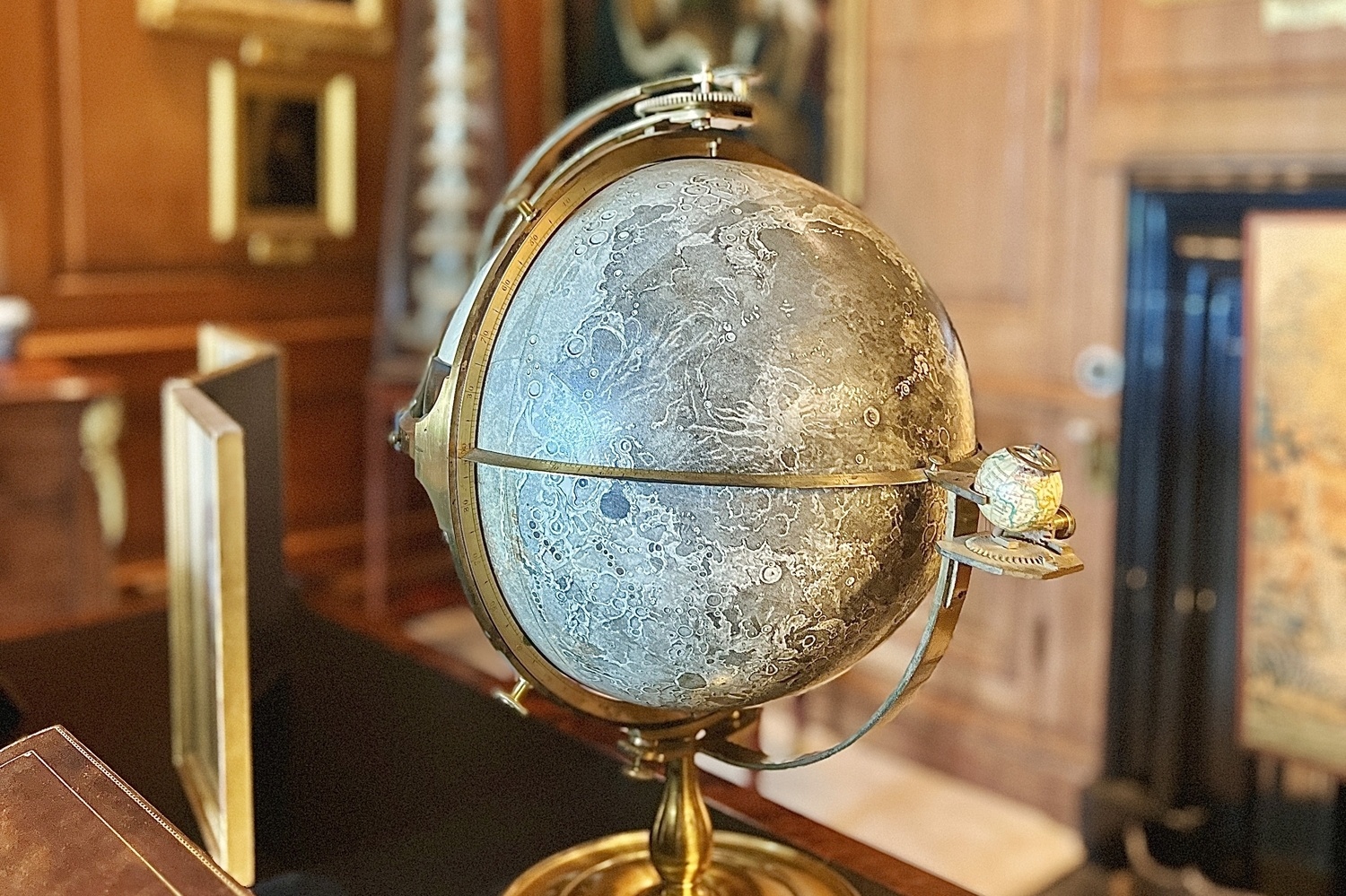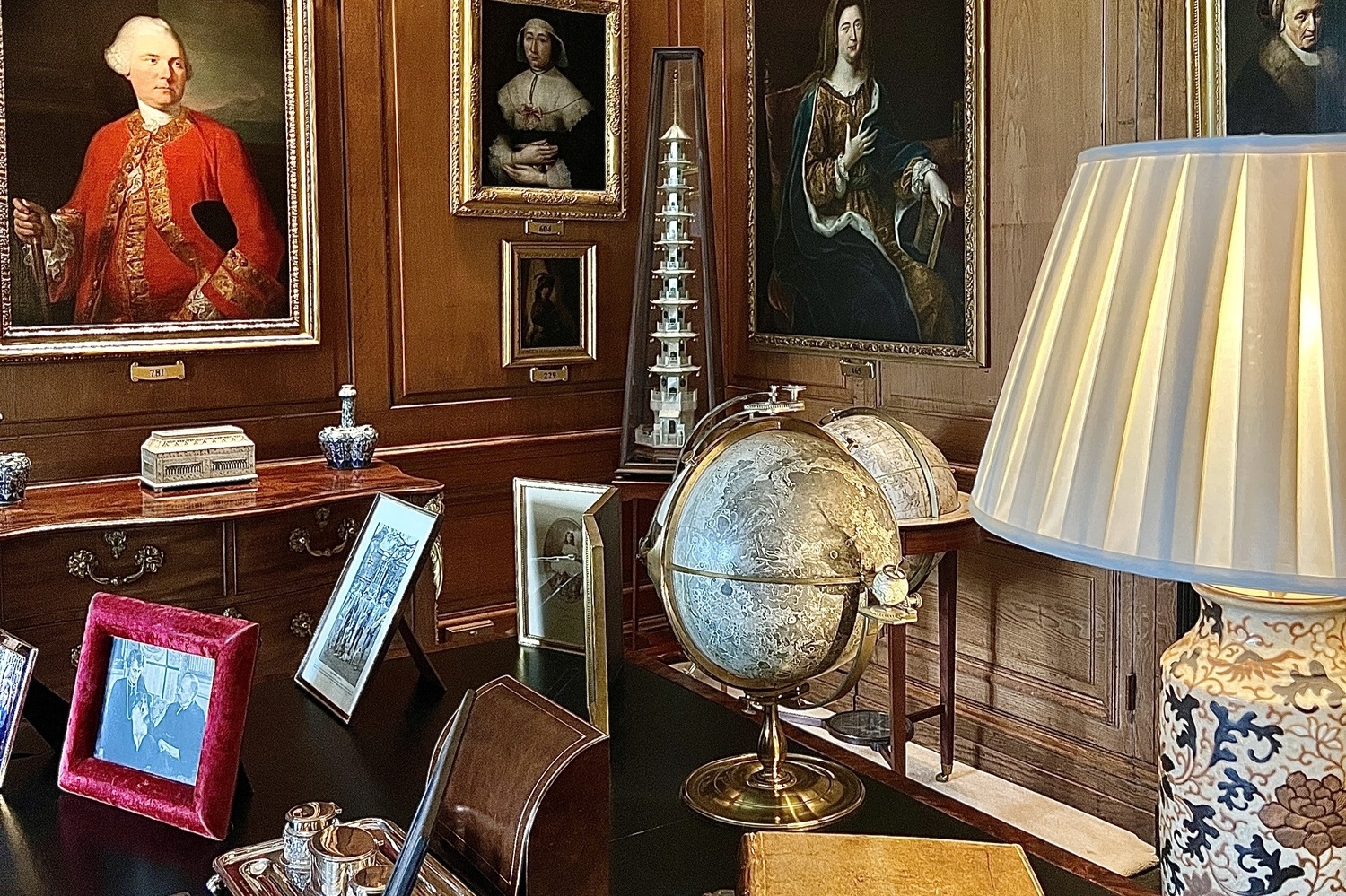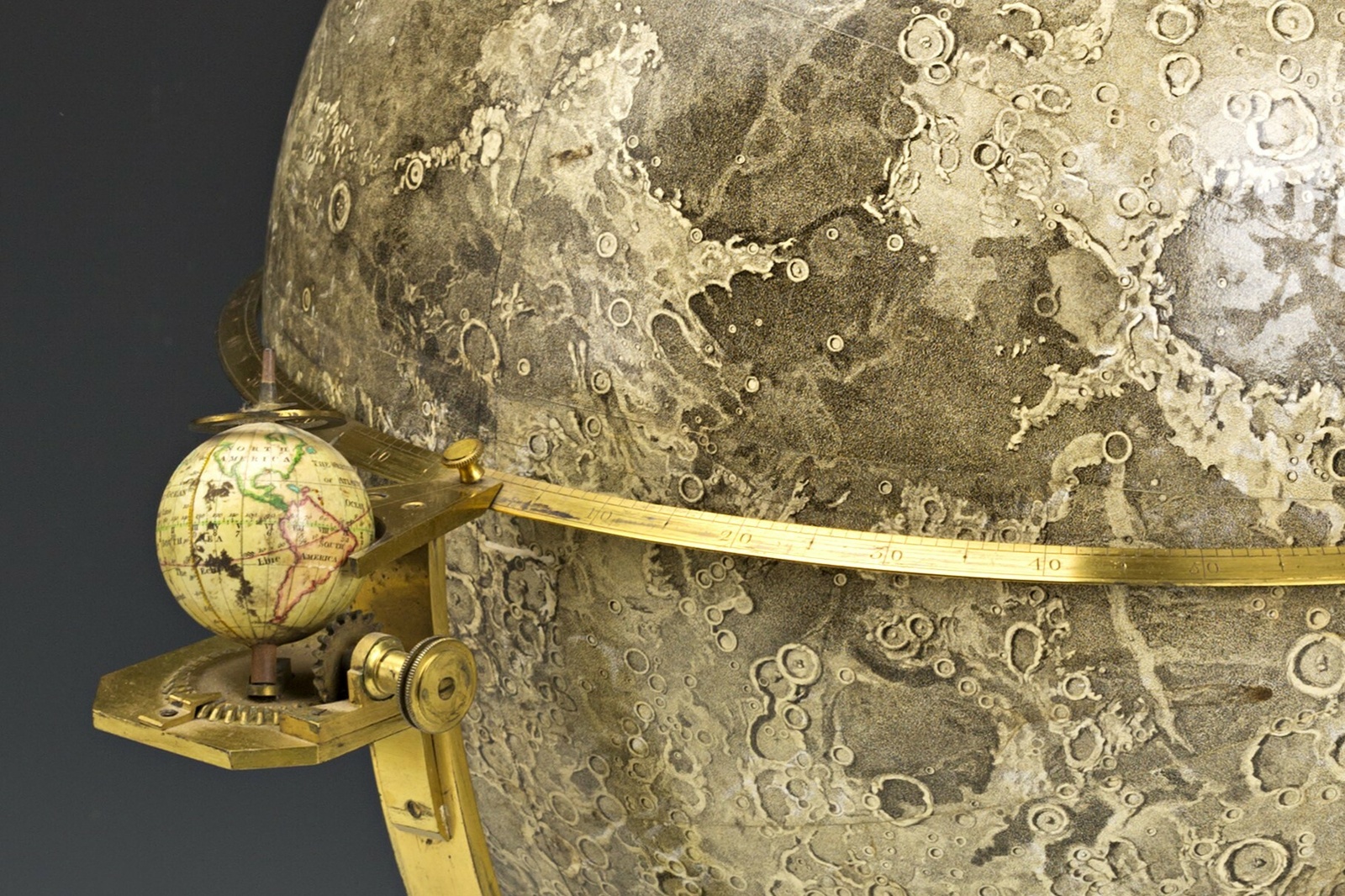
Mapping the Moon in the 19th Century
You might not expect to find an astonishing 19th Century map for an astronaut within the splendid State Rooms at Burghley House. However, this great house is full of surprises.
On a desk in the Pagoda Room is a Selenographia. This is an incredibly rare scientific instrument, collected by Henry, 10th Earl and 1st Marquess of Exeter in 1800. Henry employed the highly successful society portraitist John Russell R.A. to paint his children. Apart from portraiture, Russell was a skilled cartographer who, almost as a hobby, had spent over 30 years studying the visible surface of the Moon, using the finest telescopes available.
Russell invented the Selenographia, a device similar to a terrestrial globe, to demonstrate his observations. It consists of a large lunar sphere and a small terrestrial sphere and is constructed to reproduce the motions of the moon in respect to the earth. Only one side is illustrated, the other is blank, since only one side of the Moon is visible from Earth.


When the portraiture commission was completed, it seems that Russell also persuaded the Earl to buy this example of his remarkable invention. It was not cheap; at 26 guineas it cost considerably more than the portrait.
Whether or not the Earl got to fully appreciate his purchase remains in question. The Selenographia was rediscovered in a store room in 1985, it was still in the pine box in which it was shipped from London, packed in protective sheepswool and with a label attached giving directions to change horses at Bedford!
Some years ago, the device was lent to an exhibition at the Houston Museum of Art. Having seen the exhibition, a senior lunar scientist from NASA corresponded with Burghley’s Curator, expressing amazement at the degree of accuracy displayed by the device.


